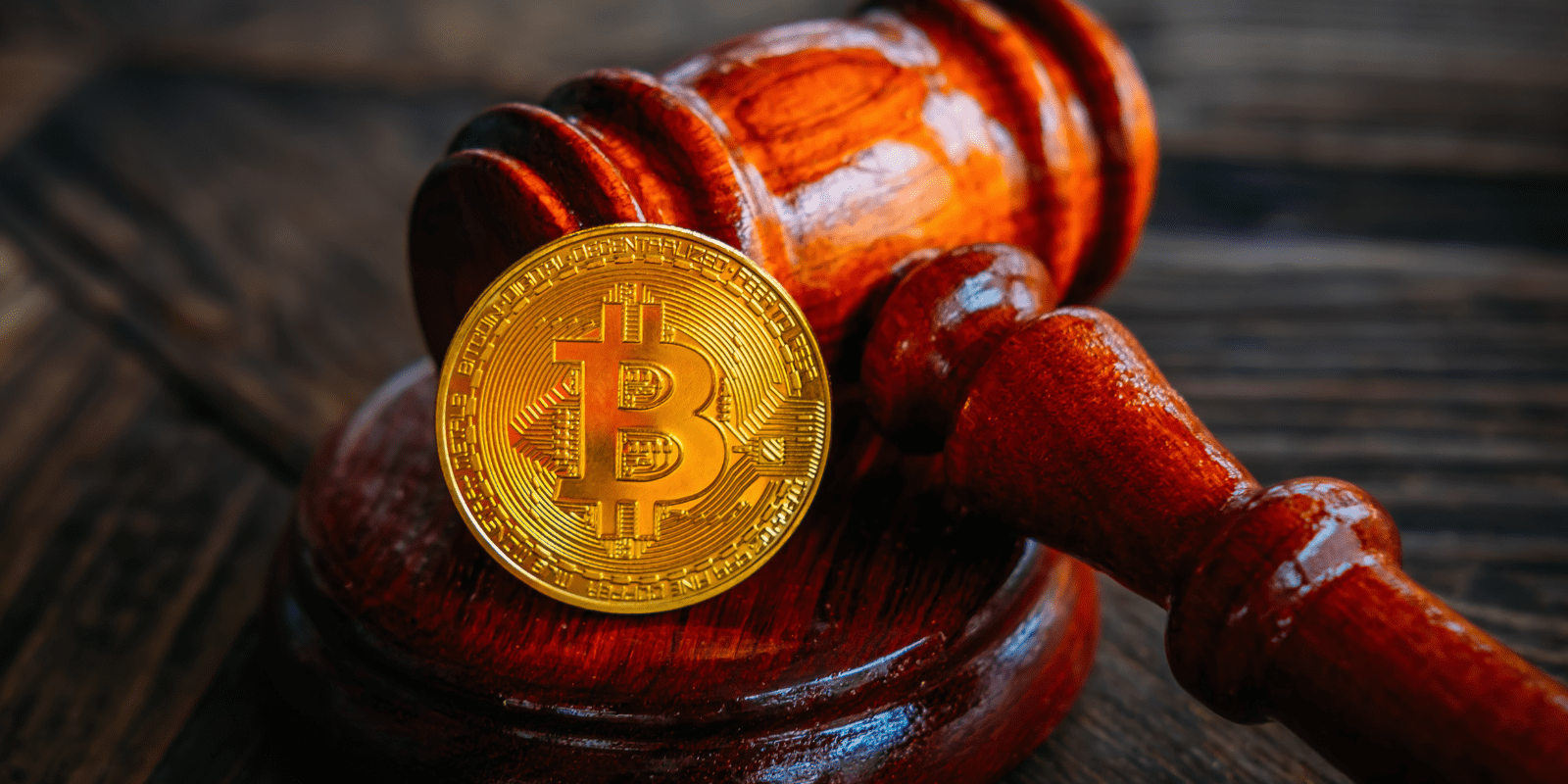Bitcoin has become a major force in the modern world, revolutionizing the way we think about money and finance. It is no longer just the domain of tech-savvy individuals and financial institutions; everyone from banks to governments is recognizing Bitcoin’s potential as both a store of value and an innovative medium of exchange.
Features of Bitcoin
Bitcoin stands out from other forms of currency due to its decentralized structure. Rather than being regulated by any central authority, Bitcoin is not subject to manipulation or control by governments or external forces. This gives it a level of stability and reliability that traditional currencies do not possess; changes in policy won’t directly affect the value or performance of Bitcoin, making it an ideal choice for those looking for secure investments.
As such, this gives investors peace of mind that their funds are safe regardless of macroeconomic conditions or international conflicts which could otherwise cause them to lose money due to devaluations in fiat currencies (or traditional paper money controlled by governments). This also makes it ideal for sending large amounts overseas without worrying about exorbitant transaction fees – often only fractions of pennies! All you need to do is buy Bitcoin in Dubai, and send it to someone overseas.
They’ll be able to easily convert them into local currency after receiving them without paying any major sum of amount.

Bitcoin Regulations
Bitcoin regulations have become a major topic of discussion in recent years as the digital currency’s popularity has surged. Governments and financial institutions around the world are attempting to regulate virtual currencies such as Bitcoin for a variety of reasons, ranging from preventing money laundering to protecting consumers from fraud.
Overall, it is important to note that each jurisdiction will pursue different approaches depending upon local economic factors; political leanings; technological capabilities, etc …and these individual responses may vary widely going forward – especially since any proposed framework must consider various aspects beyond monetary policy alone including taxation; investment laws capital controls, etc.
It should also be noted that currently, no single international body overseeing global regulation over cryptocurrencies yet exists though discussions continue between governments over this potential development.
Bitcoin Regulation Benefits
The benefits of Bitcoin regulation can be vast and far-reaching, depending on the particular regulatory framework implemented in a given jurisdiction. Generally speaking, the primary benefit of crypto regulations is greater investor protection.
Furthermore, with appropriate regulation in place, there will be many benefits for businesses as well. Another benefit of Bitcoin regulations is that it improves trust within an industry that already suffers from its fair share of scams and dodgy actors looking to make a quick buck at someone else’s expense.
Finally, crypto regulations will also incentivize innovation since it facilitates collaboration between developers working on projects related to blockchain technology and governments seeking ways to take advantage of this tech. As since bitcoin is regulated in the UAE, it has been seen more people are inclined to buy and sell Bitcoin in Dubai which increases the flow of money.
Bitcoin Exchanges
Bitcoin exchanges are places where people can buy and sell bitcoins. Some exchanges allow people to buy bitcoins with real-world currency, while others allow people to trade bitcoins for other cryptocurrencies.
The most popular OTC bitcoin exchange is Buy Bitcoin in Dubai, which allows people to buy and sell bitcoins using fiat currencies. Other popular exchanges which are online include Bitstamp, Kraken, and Gemini.
Legal Regulations Exchanges
Digital currency exchanges may be subject to varying levels of regulation as well depending on their location–some countries have not yet spoken definitively on how cryptocurrency transactions should be handled legally or taxed by governments.
It’s also important for any exchange considering expanding globally to work closely with local business partners who are familiar with both international law and local regulations-specific markets they wish to enter.
Pros and Cons of Bitcoin regulations
There are pros and cons to Bitcoin regulations. On the pro side, regulations could help to ensure that Bitcoin is used for legal purposes and is not used for criminal activities. Regulations could also help to protect consumers and ensure that they are not scammed by fraudulent Bitcoin businesses.
On the con side, regulations could stifle innovation in the Bitcoin space and make it more difficult for startups to get started. Regulations could also make it more difficult for people to use Bitcoin for legitimate purposes such as investing or purchasing goods and services.
Bitcoin Laws and Regulations in Dubai
The adoption of Bitcoin and other cryptocurrencies in Dubai has skyrocketed in recent years, with the government taking a leading role in pushing its use. As such, there have been several laws and regulations issued by the State of Dubai related to digital currencies that investors should be aware of.
Banks operating within Dubai must adhere to certain Central Bank rules when dealing with exchanges between fiat currency (e.g., AED) and virtual currency (e.g., BTC). Banks are not allowed to buy or sell cryptocurrency in Dubai either from customers or directly from exchanges; furthermore, they cannot open accounts for companies whose business activities include buying/selling cryptocurrencies nor can they receive payments from them using traditional banking channels.
In addition to these regulations set forth by the central bank, Dubai is also exploring ways to implement blockchain technology across different sectors such as education & healthcare.
Security Regulations
Security regulations for cryptocurrencies vary significantly depending on where you live and the type of currency you are using. Generally, all cryptocurrency transactions are encrypted using blockchain technology (distributed ledger) which provides an extra level of security beyond traditional banking systems.
As far as Anti-Money Laundering (AML) laws go, most countries around the world have adopted AML standards that apply to crypto exchanges and other virtual currency providers. These standards generally require customer identification procedures such as Know Your Customer (KYC).
Money transmission Laws and antimony Laundering requirements
Money transmission laws and anti-money laundering requirements are a set of regulations intended to prevent the illegal movement of money from one country or jurisdiction to another. Overall through money transmission laws, anti-money laundering requirements provide necessary oversight for cross-border payments ensuring compliance safety security integrity within financial systems.
Taxation
The taxation of cryptocurrency is an often-debated and contested subject, as the regulatory landscape in this space is constantly changing. For federal tax purposes, virtual currency is treated as property. General tax principles applicable to property transactions apply to transactions using virtual currency.

Ownership and Licensing requirements
There are a few different ways to trade crypto, and the way you go about it depends on your jurisdiction. In most cases, you’ll need to be licensed in some way or another to trade cryptocurrencies. Check with your local financial regulator to find out more about the specific requirements in your area.
Border restrictions and declaration
There are a few reasons why border restrictions and declarations might be placed on trade in cryptocurrencies. One reason is to prevent tax evasion. Another reason is to prevent money laundering. And a third reason might be to prevent the spread of financial instability. Each of these reasons has its own set of implications for traders and investors in cryptocurrencies.
From a tax perspective, any profits made from trading or investing in cryptocurrencies would be subject to capital gains taxes. This means that you would need to report your profits to the IRS, and you would likely be subject to a higher tax rate than if you had earned income from traditional investments such as stocks or bonds.
Reporting requirements
When it comes to reporting requirements to trade crypto, it really depends on the type of transaction you’re making. If you’re buying or selling crypto for fiat currency (USD, EUR, etc.), then you typically have to report those transactions to the IRS. However, if you’re just exchanging one cryptocurrency for another, then there’s usually no need to report those transactions.
To be safe, though, it’s always a good idea to consult with a tax professional to get clarification on what specific reporting requirements apply to your situation.
Estate planning and Testamentary succession
While estate planning and testamentary succession laws vary from state to state, it is important to have a plan in place in case something happens to you. It is important to remember that estate planning is not just for the wealthy — everyone should have a plan in place in case something happens unexpectedly. Consult with an attorney who specializes in estate planning to find out what options are available to you and to get help drafting a will that meets your specific needs.
Sales Regulations
Sales regulations vary from country to country. In the US, for example, sales of securities (including crypto) are regulated by the SEC. In Canada, securities are regulated by the Ontario Securities Commission, Similarly, for Dubai, it is different.
Each country has its own set of regulations that govern how and when securities can be sold. For example, in the US, a company must file a Form S-1 with the SEC before it can offer its securities to the public. In addition to following the applicable national regulations, companies that sell securities must also comply with applicable state and local laws. For example, some states have laws that require companies to register their offerings with state authorities before they can sell them to residents of that state.
The sale of crypto is generally only regulated if the sale
1. constitutes the sale of a security under state or federal law.
2. Is considered money transmission under state law or conduct otherwise making the person, a money service business [“MSB”] under federal Law.
SEC vs CFTC oversight of digital asset
The SEC and CFTC have different areas of oversight when it comes to digital assets. The SEC is responsible for regulating securities, while the CFTC is responsible for regulating commodities.
A digital asset could be considered a security if it meets the definition of an investment contract. An investment contract is an agreement between two or more parties where one party invests money in a project with the expectation of profit, and the other party manages or participates in the project.
FAQs
Does bitcoin have any regulations?
Bitcoin does not have any regulations as of now, but there are talks about creating some in the near future. The main reason for this is that people are unsure about how to deal with bitcoin and its potential implications. For example, some people think that it could be used for money laundering or terrorist financing activities.
What are crypto rules and regulations?
Cryptocurrencies are subject to a variety of regulations in different countries. For example, the United States has issued guidance on how cryptocurrencies should be treated for tax purposes. Russia has declared that cryptocurrency is not legal tender, while Japan has recognized Bitcoin as a legal currency.
How does Govt. control crypto?
By regulating the exchanges on which they are traded, and by monitoring suspicious transactions.
The government can’t control crypto directly, since it’s a digital asset that exists outside of traditional financial systems. However, they can regulate the exchanges on which it is traded, and monitor suspicious transactions to try and prevent criminal activity.
What key characteristics would bitcoin need to have to be money?
The key characteristics that make Bitcoin a viable candidate for money are as follows:
1. It needs to be deflationary, meaning that its supply decreases over time. This is necessary in order to ensure that its value increases over time (since the number of goods and services that can be purchased with it decreases).
2. It needs to be difficult to counterfeit. This is necessary in order to ensure that people have faith in the currency and are not able to produce fraudulent bitcoins.
3. It needs to be easy to use and transfer. This is necessary in order for people to use it as a means of exchange.
Which are the countries where crypto is illegal?
The following countries have made cryptocurrency illegal:
Bangladesh, Bolivia, Ecuador, Kyrgyzstan, and Nepal.
In addition, the United Arab Emirates has issued a warning against investing in cryptocurrencies.
Which countries have regulated crypto?
Countries that have regulated crypto include China, South Korea, and the United States. Each country has taken a different approach to regulating crypto. For example, China has placed a ban on Initial Coin Offerings (ICOs) and has barred domestic cryptocurrency exchanges from operating within its borders. South Korea has banned anonymous cryptocurrency trading, and the United States has created a task force to investigate fraudulent schemes involving cryptocurrencies.







